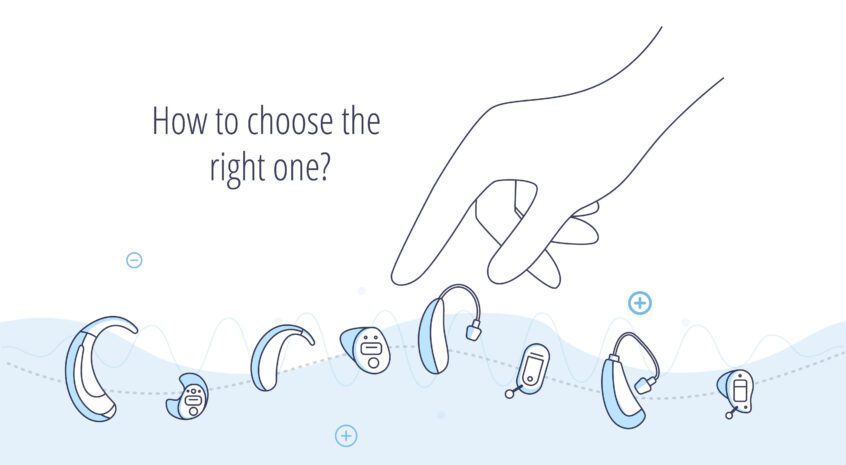With over-the-counter (OTC) hearing aids now approved by the Food and Drug Administration, hearing aid options have increased significantly and run the gamut from entry-level OTCs to more advanced prescription hearing aids, but how do you know what the most affordable option is for you?
Whether you’re looking for OTC or prescription hearing aids, consider your budget, hearing needs, and lifestyle when deciding which hearing aids offer the best value.
OTC Hearing Aids
Be aware that OTC hearing aids often are promoted as more affordable, but there’s more to consider than price. These hearing aids should only be used by adults over age 18 with mild-to-moderate hearing loss. They are not appropriate for children.
OTCs are only sold in pairs, and prices may start under $500 for a pair, but they can top out above $1,500-$2,000 or more. As a comparison, some prescription hearing aids start at $1,500 a pair, including in-person service and warranty.
When buying OTCs, which are only approved for mild-to-moderate hearing loss, a diagnostic hearing evaluation isn’t required. However, it would be helpful, ensuring you don’t have a more significant hearing loss, which would indicate the need for prescription hearing aids.
In most cases, OTCs are purchased off the shelf of a retail store or online. There is no in-person support. Some OTCs do have online support though. Like any retail product, before buying OTCs, be sure to check the warranty and return policies for these products. Most have limited one-year manufacturer warranties with no loss/damage coverage.
OTC Pros & Cons
If you are an adult over 18 who has mild to moderate hearing loss, OTCs might be for you.
Pros include:
- Lower cost, typically $800 to $1,600 for a pair.
- No evaluation required.
- Readily available off the shelf.
Cons include:
- Not designed to treat more significant hearing loss.
- One size fits most, no customization.
- Self-fitting with online assistance.
- Typically offer fewer features than prescription hearing aids.
- No in-person professional care at or after the sale.
Prescription Hearing Aids
Prescription hearing aids, on the other hand, have been available for decades from hearing professionals who are licensed to fit and sell these devices. These professionals are trained to perform a diagnostic hearing evaluation, which is necessary in order to determine if you have a hearing loss, and if so, the professional can recommend the best hearing aids for your needs, lifestyle and budget.
Prescription hearing aids start at $1,500 a pair and can run up to $5,400 a pair for more advanced devices that include features such as Bluetooth connectivity, artificial intelligence, rechargeables and directional microphones.
The price of prescription hearing aids also typically includes in-person service from a hearing health professional to ensure the hearing aids are programmed just for your hearing loss, and should include a warranty.
Prescription Hearing Aid Pros & Cons
Prescription hearing aids can be used to treat any level of hearing loss in adults and children.
Pros include:
- Customization available for each patient based on their hearing loss/evaluation.
- More advanced features, such as Bluetooth, rechargeable and artificial intelligence.
- In-person service.
- Warranty.
- Some insurance plans help cover prescription hearing aids.
Cons include:
- Diagnostic hearing evaluation required.
- Cost ranges from $1,500 to $5,400 per pair.
- In-person evaluation and fitting required.
Which Should You Choose?
Before making your mind up, professional organizations such as the American Speech-Language-Hearing Association recommend you visit a hearing health professional for a diagnostic hearing evaluation. That’s the only way to know if you even have a hearing loss, and if you do, how severe it is.
Bottom line, be sure to consider more than price when deciding on the most affordable hearing aids for you. In some cases, OTCs may work well, but in others prescription hearing aids may provide you with the best value for the type of hearing loss you have, or if you are more comfortable with in-person care and service.



